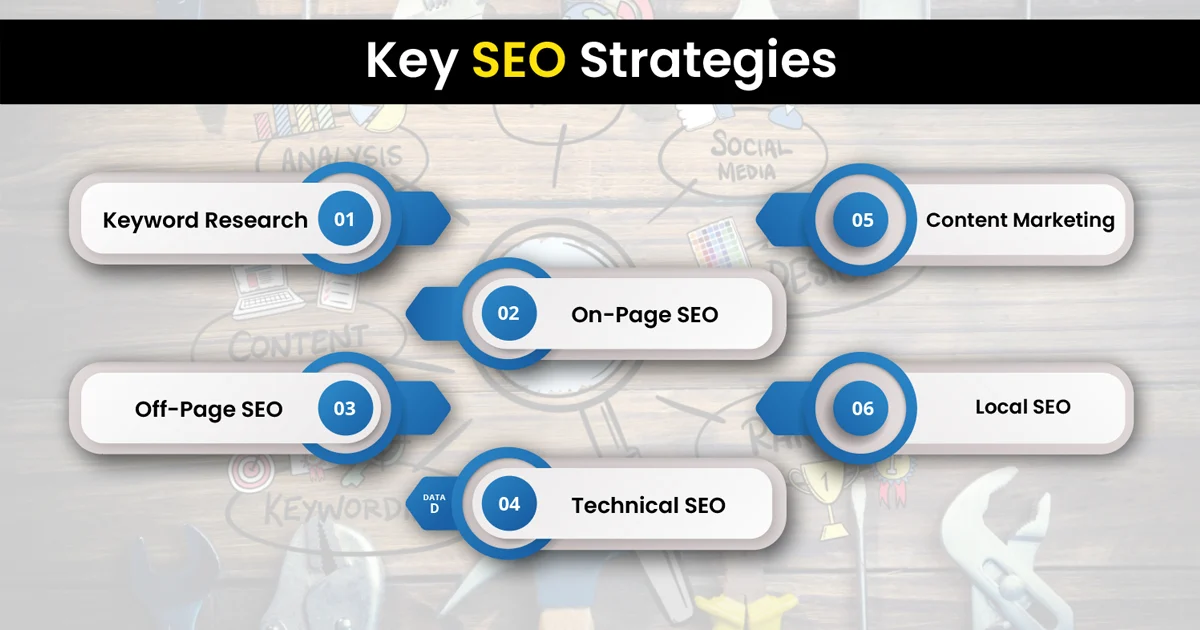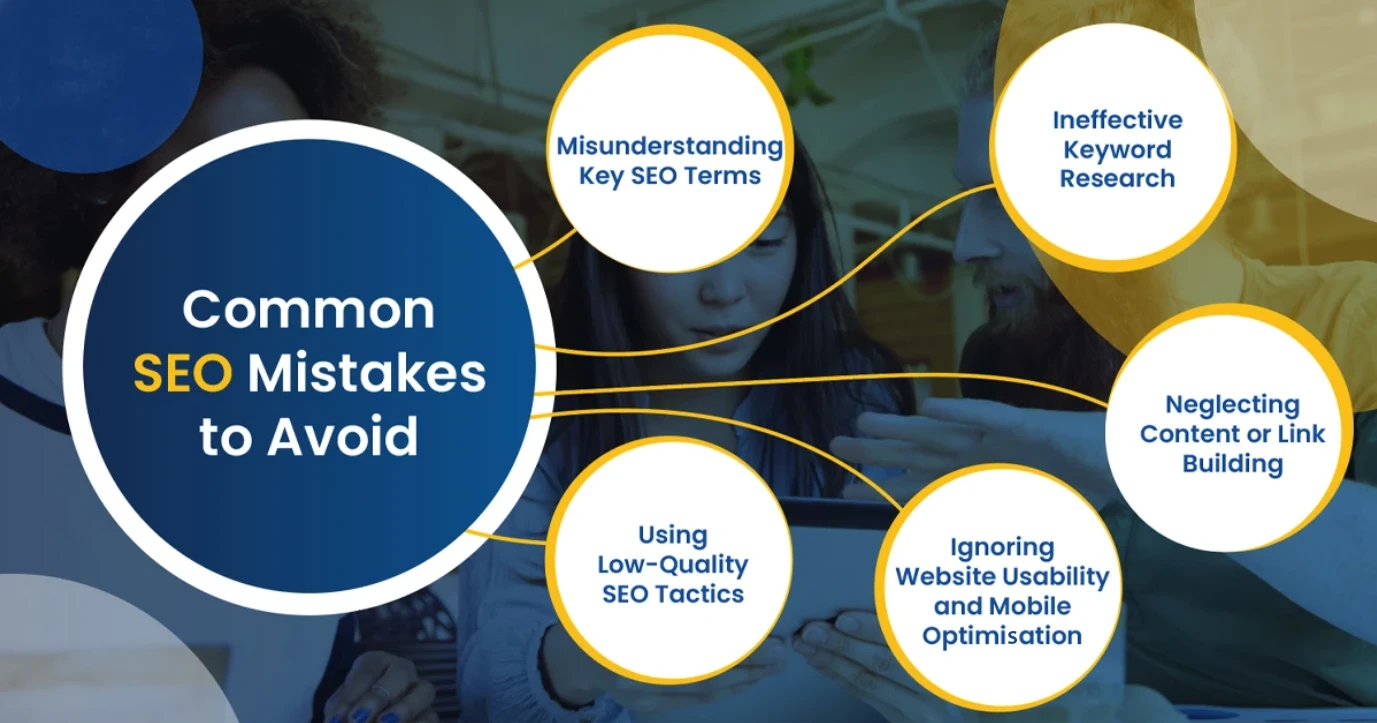
SEO : What Every Business Needs to Know
Introduction
In today’s digital landscape, having an online presence is essential for small businesses aiming to reach a broader audience. Search Engine Optimisation (SEO) is a crucial component of this presence, helping businesses improve their visibility on search engines, build credibility, and enhance the user experience on their websites. This article delves into everything small businesses need to know about SEO, from its importance to effective marketing strategies and common pitfalls.
Importance of SEO for Small Businesses

SEO for small businesses is vital because it levels the playing field, allowing them to compete with larger companies. By optimising their websites, small businesses can attract organic traffic, improve their search engine rankings, and ultimately increase sales and customer engagement. The benefits of small business SEO extend beyond visibility; they also include establishing credibility and providing a better user experience.
What is SEO Marketing?
SEO, or Search Engine Optimisation, is the process of enhancing a website’s visibility on search engines like Google. In digital marketing, SEO is crucial as it drives organic traffic, which is more sustainable and cost-effective compared to paid advertising. The key components of SEO include:
- On-Page SEO: Optimising individual web pages to rank higher.
- Off-Page SEO: Improving the website’s reputation through backlinks and social signals.
- Technical SEO: Ensuring the website meets technical requirements for search engines.
Why SEO Matters for small Businesses?
SEO matters because it generates organic traffic, which is cost-free compared to paid traffic. High search engine rankings are crucial because the majority of users do not look beyond the first page of search results. Statistics show that around 75% of users never scroll past the first page, highlighting the importance of ranking well. SEO also impacts user behavior; users are more likely to trust and engage with websites that appear at the top of search results.
Key SEO Strategies for business success

Keyword Research
Keyword research is the foundation of SEO. It involves identifying terms and phrases that potential customers use to search for products or services. Tools like Google Keyword Planner and SEMrush can help in finding relevant keywords. Focusing on these keywords ensures that your content reaches the right audience. For instance, “small business search engine optimisation” and “SEO for small businesses” are crucial keywords to target.
On-Page SEO
On-page SEO involves optimising content to improve its relevance and quality. This includes:
- Content Quality: Ensuring the content is valuable and relevant to the audience.
- Meta Tags: Optimising title tags, meta descriptions, and headers.
- URL Structure: Creating clean and descriptive URLs.
Off-Page SEO
Off-page SEO focuses on building the website’s authority through:
- Link Building: Acquiring high-quality backlinks from reputable sites.
- Social Signals: Leveraging social media platforms to enhance visibility.
- Local Citations: Listing the business in online directories.
Technical SEO
Technical SEO ensures that the website meets the technical criteria set by search engines:
- Site Speed Optimisation: Improving page load times.
- Mobile-Friendliness: Ensuring the website is responsive on all devices.
- Secure Connections (HTTPS): Using SSL certificates to secure the site.
- Sitemaps and Robots.txt: Helping search engines crawl and index the site effectively.
Content Marketing
Creating valuable content is key to attracting and retaining visitors. Regularly updating your blog with fresh and informative posts helps keep your audience engaged and signals to search engines that your site is active and relevant.
Local SEO
Local SEO is crucial for small businesses targeting customers in specific geographic areas. This involves:
- Google My Business Optimisation: Ensuring your business profile is complete and accurate.
- Consistency in NAP Information: Keeping your business name, address, and phone number consistent across all platforms.
Achieving SEO Success
Success in Search engine optimisation requires ongoing efforts and adaptation. Conducting competitive analysis helps in understanding what strategies work for your competitors. Continuous optimization, using tools like Google Analytics and Ahrefs, aids in tracking progress and making necessary adjustments.
Common SEO mistakes to avoid

- Misunderstanding Key SEO Terms: Being clear on terms and their implications.
- Ineffective Keyword Research: Using relevant and well-researched keywords.
- Neglecting Content or Link Building: Maintaining a balance between content creation and acquiring backlinks.
- Using Low-Quality SEO Tactics: Avoid tactics like keyword stuffing and buying links.
- Ignoring Website Usability and Mobile Optimisation: Ensuring a seamless user experience across devices.
Finding the Right SEO Service
Hiring an SEO agency can provide expertise and save time. When choosing an agency, consider their experience, client testimonials, and transparency in reporting. For small businesses, finding an agency specialising in “SEO for companies” or “business SEO” can be particularly beneficial.
Conclusion
SEO is a powerful tool for small businesses looking to enhance their online presence. By understanding and implementing effective SEO strategies, businesses can achieve higher search engine rankings, attract more organic traffic, and ultimately drive growth. Continuous optimization and staying updated with SEO trends are crucial for sustained success. Whether it’s “SEO for small companies” or “small business SEO marketing”, the right strategies can make a significant impact.
